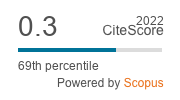The Cultural Role and Political Implications of Poland’s 1947 Shakespeare Festival
DOI:
https://doi.org/10.1515/texmat-2017-0010Keywords:
Communist regime, World War 2, Marxist ideology, Soviet culture, Shakespeare in Poland, Cold WarAbstract
Emerging from the atrocities of war, and still hoping to avert the results of the Yalta conference during which the countries of Central and South–Eastern Europe, including Poland, were “handed over” to Stalin, Poland’s 1947 Shakespeare theatre festival was a sign of courage and defiance. At the Festival 23 productions of 9 Shakespeare’s dramas were staged by theatres in 11 towns, with its finale in Warsaw. My paper will show that the Festival was an attempt to demonstrate both Polish cultural links with Europe, and to subvert Marxist ideology and Soviet culture.
Downloads
References
Borowy, Wacław. “Przekłady Shakespeare’a i teatr (II).” Teatr 1–2 (1948): 19–25. Print.
Google Scholar
Borowy, Wacław. “W jakich przekładach grać Szekspira.” Teatr 1 (1945): 27–37. Print.
Google Scholar
Ciechowski, Jan, ed. Konkurs Szekspirowski wczoraj i dzisiaj. Gdańsk: Fundacja Theatrum Gedanense, 1997. Print.
Google Scholar
Fik, Marta. Kultura polska po Jałcie: Kronika lat 1944–1981. Warszawa: Niezależna Oficyna Wydawnicza NOWA, 1991. Print.
Google Scholar
Guthrie, Tyrone. “International News.” Shakespeare Survey 1 (1948): 112– 18. Print.
Google Scholar
Hahn, Wiktor. Shakespeare w Polsce: Bibliografia. Wrocław: Zakład im. Ossolińskich, 1958. Print.
Google Scholar
Hajdukiewicz, Bolesław. “Szekspir a widownia współczesna” Teatr 4–5 (1947): 38–43. Print.
Google Scholar
J. K. “Poskromienie złośnicy otwiera konkurs szekspirowski” Teatr 9 (1947): 46–47. Print.
Google Scholar
K. M. “Konkurs Szekspirowski w cyfrach.” Teatr 9 (1947): 22–24. Print.
Google Scholar
Korzeniewski, Bogdan. “Zagłada teatrów warszawskich.” Teatr 1–2 (1946): 36–41. Print.
Google Scholar
Kotlarczyk, Mieczysław. “O polską inscenizację Szekspira.” Konkurs Szekspirowski wczoraj i dzisiaj. Ed. Jan Ciechowski. Gdańsk: Fundacja Theatrum Gedanense, 1997. 173–74. Print.
Google Scholar
Kott, Jan. Szekspir Współczesny. Kraków: Wydawnictwo Literackie, 1990. Print.
Google Scholar
Kujawińska Courtney, Krystyna. “Celebrating Shakespeare under the Communist Regime in Poland.” Shakespeare in Cold War Europe: Conflict, Commemoration, Celebration. Ed. Erica Sheen and Isabel Karremann. London: Palgrave-Macmillan, 2016. 23–35. Print.
Google Scholar
Kujawińska Courtney, Krystyna. “‘In This Hour of History: Amidst These Tragic Events’ – Polish Shakespeare During the Second World War.” Shakespeare and the Second World War: Memory, Culture, Identity. Ed. Irena R. Makaryk and Marissa McHugh. Toronto: U of Toronto P, 2012. 112–42. Print.
Google Scholar
Kujawińska Courtney, Krystyna. “Krystyna Skuszanka’s Shakespeare of Political Allusions and Metaphors in Communist Poland.” Shakespeare in the World of Communism and Socialism. Ed. Irena R. Makaryk and Joseph Price. Toronto: U of Toronto P, 2006. 228–45. Print.
Google Scholar
Lambda. “Konspiracyjna Rada Teatralna i wartość jej uchwał w dniu dzisiejszym.” Teatr 1–2 (1946): 49–71. Print.
Google Scholar
Marczak-Oborski, Stanisław. “Pamflet na Festiwal Szekspirowski.” Konkurs Szekspirowski wczoraj i dzisiaj. Ed. Jan Ciechowski. Gdańsk: Fundacja Theatrum Gedanense, 1997. 175–78. Print.
Google Scholar
Puzyna, Konstanty. “Szekspir u Galla w Gdyni.” Konkurs Szekspirowski wczoraj i dzisiaj. Ed. Jan Ciechowski. Gdańsk: Fundacja Theatrum Gedanense, 1997. 63–64. Print.
Google Scholar
Rulikowski, Mieczysław. “Shakespeare na scenach polskich.” Teatr 5 (1945): 3–15. Print.
Google Scholar
Schiller, Leon. “Z historii wpływów teatru radzieckiego na oblicze ideowe scen naszych.” Teatr 10–11 (1947): 27–36. Print.
Google Scholar
Żurowski, Andrzej. Myślenie Szekspirem. Warszawa: Instytut Wydawniczy PAX, 1983. Print.
Google Scholar
Downloads
Published
How to Cite
Issue
Section
License
Copyright (c) 2017 A Journal of Literature, Theory and Culture

This work is licensed under a Creative Commons Attribution-NonCommercial-NoDerivatives 4.0 International License.













